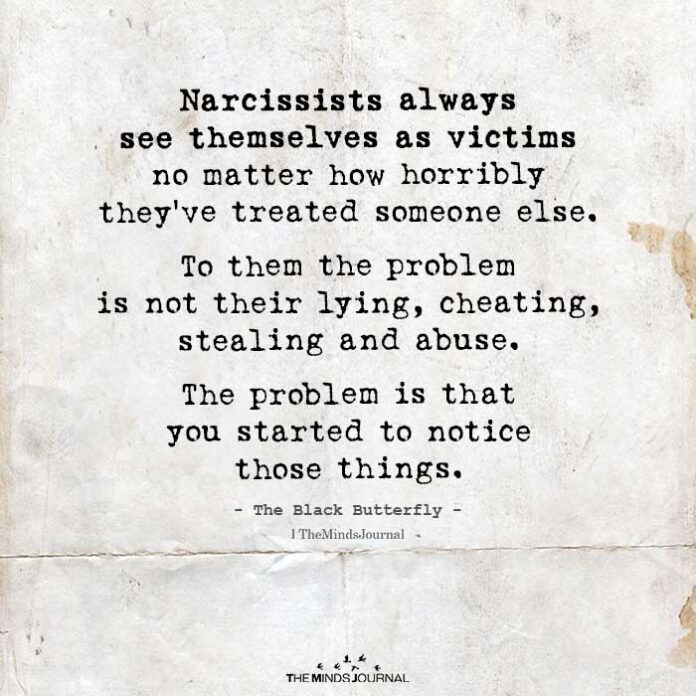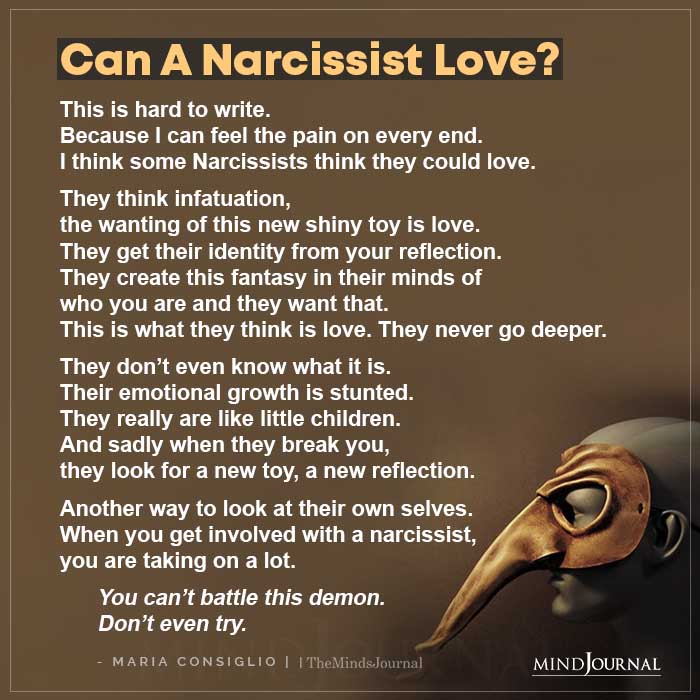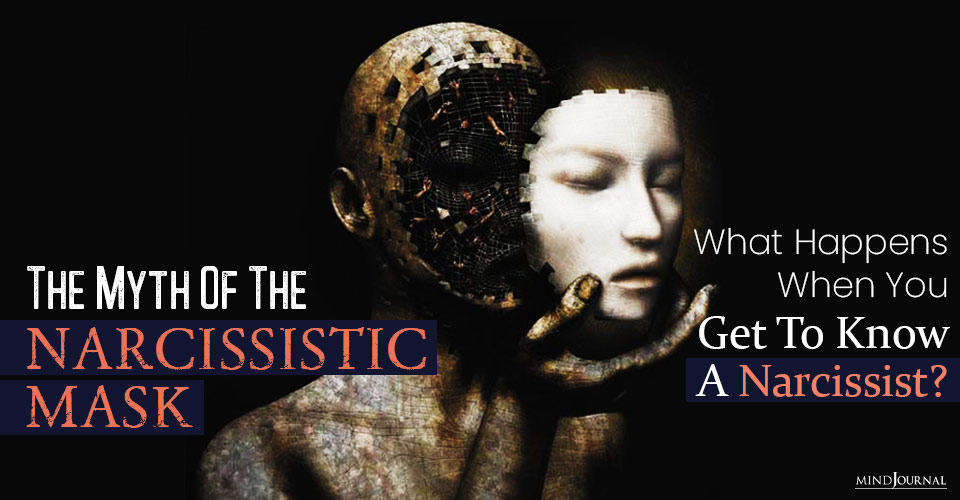The myth of the narcissistic mask. What really happens when you get to know a narcissist?
Written By Dr. Elinor Greenberg
KEY POINTS:
- Narcissists need external validation to sustain their self-esteem which leads them to exaggerate their desirable qualities.
- There is a huge difference between how narcissists act during courtship and how they behave later in a relationship.
- The difference between a narcissist’s earlier and later behavior gave rise to the myth that narcissists craft a fake mask to deceive people.
There are a lot of urban myths being spread on the internet about people with narcissistic personality disorder. Most of them are good-faith attempts by people without any mental health credentials to understand and explain how narcissists can be so loving at the beginning of a relationship and then suddenly turn off all the good feelings and become abusive.
Related: 7 Common Myths About Narcissistic Personality Disorder
What is the myth of the narcissistic mask?
The urban myth I am writing about today is the myth of the narcissistic mask. This is the idea that all narcissists are predators and intentionally and carefully craft a “mask” to hide their evil intentions. This myth includes the idea that once you unmask the narcissist, they will leave you.
Sorry to have to be so blunt, but this idea is not true. The average person with a narcissistic personality disorder is not Machiavellian enough to consciously design a false persona that they don to fool the rest of us. There are no special narcissistic masks in my experience. At most, you will see an exaggerated and overly confident facade that is meant to hide the narcissist’s insecurities.
Note: I am using the terms narcissist, NPD, and narcissistic as a shorthand way of describing people whose issues meet the criteria for a diagnosis of narcissistic personality disorder.
Instead of thinking “masked” vs. “unmasked,” it is more accurate to say that sometimes people with narcissistic personality disorder can be on their good behavior or having an unusually good day and seem pleasant and normal. Other times, they feel insecure and act grandiose or dismissive of other people. Sometimes, they get triggered and become enraged.
When they are triggered, it is easy to see that they are not normal because:
- They overreact to the situation.
- They become abusive and devaluing.
- They may scream vile things.
- They blame you or someone else instead of taking responsibility for their mistakes.
- They make threats.
Many of my clients with NPD do this almost every day, while others can hold it together for months. After they explode and become abusive, it is usually pointless to directly confront them about their bad behavior. If you confront them, they will attack you. The attack is not about you “unmasking” them. It is about you criticizing them.

Do they then leave never to return?
Every person is different. Many of my narcissistic clients feel embarrassed after the fact by their out-of-control behavior. They know they took it too far. If they sense you will not just let them pretend the whole thing never happened, the fight will continue. They will try to find some way to justify their behavior, usually by blaming you. “If you hadn’t done or said such and such, I would not have reacted the way I did. It is all your fault and you owe me an apology.”
If you are married, they do not suddenly leave, never to return. The usual response is to see you as their enemy and do things to punish you. What they do depends on their personality and how far they take revenge. Some will stay angry for days, and others will wake up cheerful the next morning and act as if nothing happened.
If you let the whole matter drop and do not throw it in their face, things will eventually go back to what passes for normal in your house.
I am not suggesting that you ignore their bad behavior. I am just predicting the likely outcomes. For example, if you are dating, this fight may cause them to leave the relationship. Again, it is not about an “unmasking,” it is about having a fight and the person believing that it is easier to leave than apologize or try and fix things.
Related: How To Make A Narcissist Respect You: The Only Way
Why do people say narcissists never let you go?
There are all sorts of people with NPD. Some are happy to date lots of people or have one-night stands, while others want a long-term monogamous relationship. Many narcissists are what I call “recyclers.” They leave you after a fight or when they get bored or because they find someone else more attractive. If they move on to someone else, that relationship is unlikely to work out either. They move on again. Some reach out to prior lovers when there is no one new in the picture.
The idea that narcissists never let you go is somewhat over-dramatic. Stating it that way exaggerates the narcissist’s power over you. Yes, some narcissists do try to reconnect with their exes, but so do all sorts of other people who find themselves alone.
What is hoovering?
One night, your narcissistic ex is sitting around lonely, horny, and bored. They start reviewing who they can reach out to for some late-night romance or sex. You come to mind. That is when you get that cute late-night text—or a simple “Hey there.” If you respond, they will come over for some late-night sex, or try and get you to come to their place.
If you do not jump at the chance, some narcissists get more interested in you. They start courting you again. If they enjoy the challenge, their boredom disappears, and they may try and resume their relationship with you. If you still resist, they may up their game and go to ridiculous lengths to try and suck you back into a relationship. This is called “hoovering.”

Summary
People with narcissistic personality disorder have shaky self-esteem. Some hide their sense of inadequacy behind a grandiose facade. This is not really a carefully crafted “mask.” It is more like an instinctive attempt to present themselves in a way that they feel is impressive and will get them what they want.
Related: The Truth About Narcissistic Personality Disorder
You will eventually see a narcissist’s imperfections. If you confront them, they will try and turn the tables and devalue you. It is as simple as that and not particularly mysterious. We are not dealing with the “Phantom of the Opera” who really had a mask and something to hide.
Check out Dr. Elinor Greenberg’s book, Borderline, Narcissistic, and Schizoid Adaptations: The Pursuit of Love, Admiration, or Safety.
Written By Dr. Elinor Greenberg Originally Appeared On Psychology Today











Leave a Reply